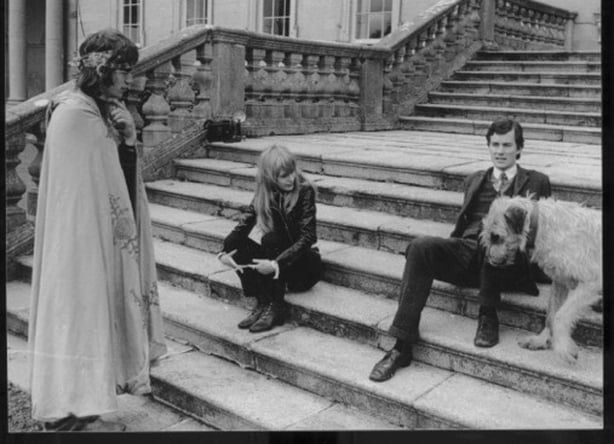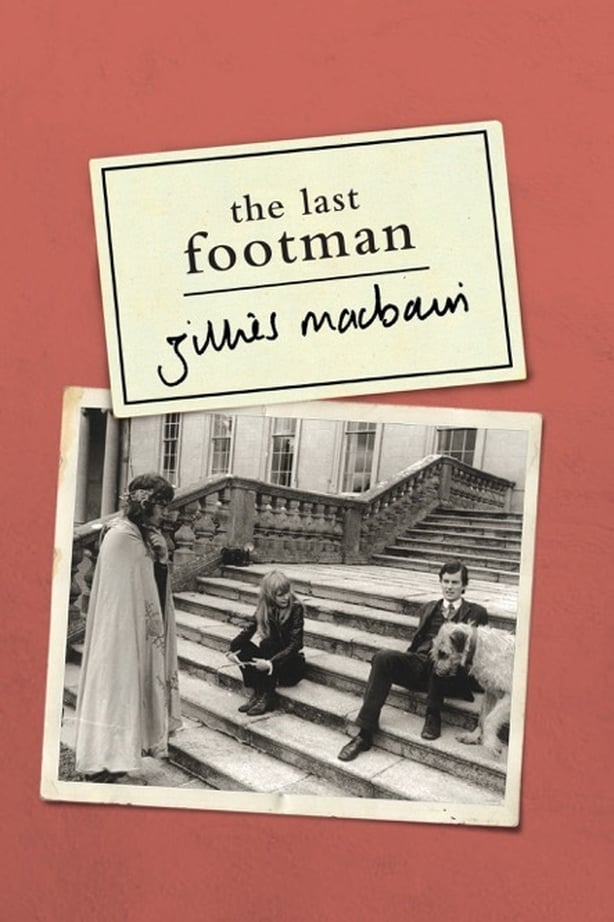We're delighted to present an extract from The Last Footman, the new memoir by Gillies Macbain, published by Lilliput Press.
In the summer of 1964, twenty-one-year-old Gillies Macbain arrives in Dublin off the ferry from England with only his bicycle, a suitcase and a tent to his name. Young, handsome and charismatic, he begins work as a footman in one of the houses of the dying aristocracy. Thus begins his foray into the upper echelons of Irish society...
Dublin, 1963
The bus that brought me from the mailboat pier in Dun Laoghaire into Dublin was dark green, a double decker with an open platform at the back. I sat in the rearmost, sideways facing seats. the bus conductor rode standing, on the platform. at every stop he greeted each female passenger as they got on, with a kiss – nothing disrespectful, just a light kiss on the cheek. I was mesmerised. English bus conductors did not treat their passengers so. Was he drunk? No. the women seemed to expect and cautiously accept it. We travelled a long meandering route through south Dublin suburbs still sleeping in the watery winter sunshine. Were we lost? No. Did we hurry? Not at all. at Baker's Corner a dog lay asleep in the middle of the road.
This really happened to me on my first day in Dublin. What would be the point of making it up? It happened, but what did it mean? I do not know. Perhaps that is why I remember, when so much else is forgotten. It is a loose end in a tale of loose ends – in fact a loose end in a life of loose ends.
My first sight of Ireland, that morning, had been of the tall painted houses of Dun Laoghaire, through a slight sea mist. I had come to Dublin with no money, or to be more precise, with thirty shillings, most of which had gone on the single fare for the boat. Before I could afford to travel on any further, or even eat, I had to make my way to the city centre. There in Grafton Street, on the corner of Anne Street, I found my way to the premises of Louis Wine, the jeweller. There on the glass counter above the antique rings and watches I laid my only valuables, a pair of gold cufflinks bearing my father’s initials. Louis Wine himself looked closely at this offering with an expression of sorrowful disdain, which at the time I found wholly convincing. he announced that he would give me four pounds.
I was twenty years old, but a very immature twenty. Too inexperienced to haggle, I was quickly shown out of the door and on to the pavement again, with four pounds in my pocket.
I walked on down Grafton Street, hoping to find a bus to Bray, to take me out of Dublin and put me on to the road south.

Nineteen Sixty-Three was one of the most severe winters of the twentieth century. Two days earlier, in England, hitch-hiking in the dark over a pass in the Pennine hills, I had travelled between banks of deep snow piled up higher than the cars. Here, in ireland, as I hitch-hiked slowly southwards along the foot of the Wicklow mountains, there was still snow, but the main roads were clear, and there were soon only thin drifts here and there in the shadow of the hedgerows.
As the day wore on, I made my way to Wexford town, and then to Waterford, obliged to go by whatever routes the drivers would offer me. Finally, nearing dusk, I got down from my last lift, a gravel lorry, beside a pub familiarly called 'The Cats’ on the southern slopes of the Knockmealdown mountains. my objective was the monastery of Mount Melleray.
I had read in a pre-war travel guide, in search of Ireland, that the Cistercian monks of Mount Melleray offered hospitality in the medieval tradition to anyone who knocked on their door. From ‘The Cats’ bar I took the road up the hill in the gathering darkness, not knowing whether this tradition would still hold good thirty years after the book had been published.
At a cottage beside the road I saw a woman with a spade going in from her vegetable garden, and called out to ask her if I was going the right way.
‘The gate is up the road on the left,’ she said, ‘but hurry, the monks will be gone to bed.’
I hurried. I was sweating now, carrying a large suitcase, and clueless as to what I would do if refused admittance. I came to a wide stone gateway, went up a long avenue, and sensed rather than saw ranges of buildings in the wintery darkness. At a small gothic doorway was a single light, and a bell. Now there was silence except for my own breathing. After a while, and from somewhere within, came the sound of shuffling feet. An old man in a brown habit opened the door and I began to explain that I needed somewhere to stay the night.
‘Would that be one night?’ he asked, cutting short my story.
‘Maybe more.’ I said.
He turned and gestured me to follow him down the stone passage. No other words passed between us. He put on a light in what seemed to be a sitting room or small waiting room, and asked me had I eaten. Learning that I had not, he left me there to sit beside the dying embers of a small turf fire. I was twenty, tallish and lean, and suddenly, after two days and two nights of constant travelling, I was aware of deep silence. only now did it come home to me that I was going to leave England, for good. I was alone in the world.
After what seemed like ten or fifteen minutes the old monk returned. He put down at the table a tray, with poached eggs on toast, home-made brown bread, home-churned butter, home-made strawberry jam, and a steaming pot of tea. He closed the door silently behind him. I sat down in front of this feast, put my head in my hands, and wept.

The Last Footman by Gillies Macbain (published by Lilliput Press) is out now.

